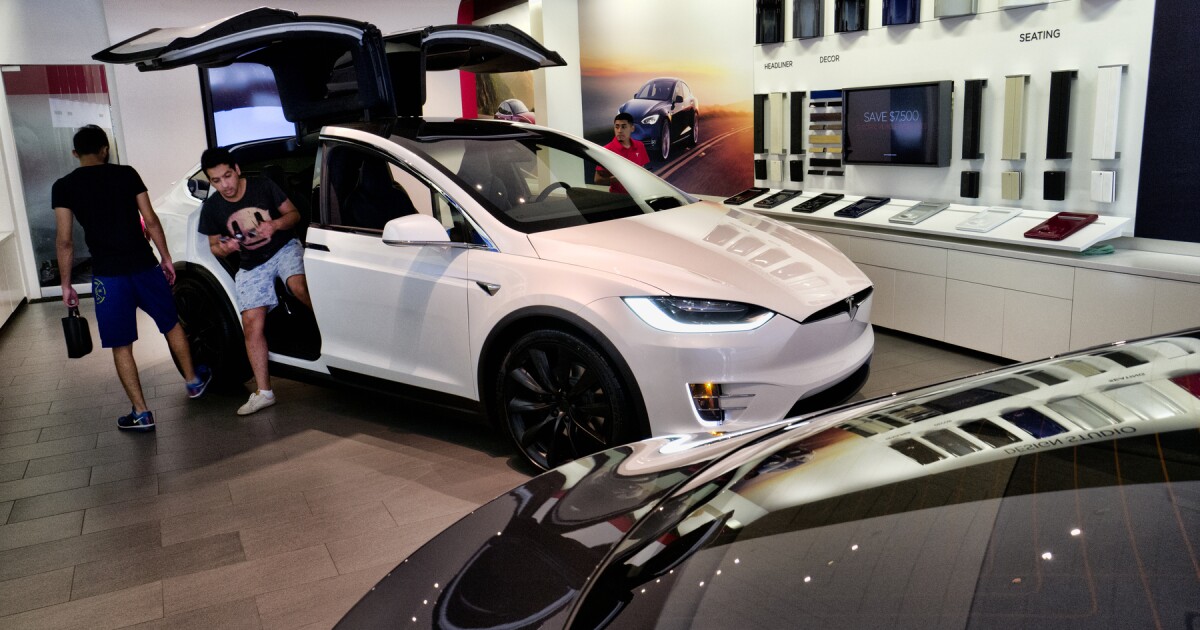

Electric vehicle and hybrid vehicle sales in Germany dropped sharply in January following the expiration of its government subsidy program, illustrating the extent to which consumers depend on the financial incentives.
Electric car sales in Germany fell by 32% in January compared to the same point last year, according to data from German auto association VDA.
WHITMER’S 2024 BUDGET EYES $318M IN SUBSIDIES FOR ELECTRIC VEHICLES
Sales of battery electric vehicles, BEVs, fell by 13% compared to January 2022, while sales of plug-in hybrid electric vehicles, PHEVs, dropped by a stark 53%.
Germany announced last July that it would reduce its financial incentives for electric purchases in 2023, citing the high rate of consumer adoption and sales as evidence the support was no longer needed.
Meanwhile, the United States is adding new subsidies under President Joe Biden. The Inflation Reduction Act passed by Democrats last year includes a provision allowing up to $7,500 in consumer tax credits for the purchase of a new electric vehicle in an effort to spark widespread EV adoption.
“E-vehicles are becoming more and more popular and will no longer need government subsidies in the foreseeable future,” Economy Minister Robert Habeck said in a statement last year announcing the end of the German program.
To be sure, the subsidies meant that more hybrid and electric vehicles were added to German roads.
But the drop to start the year is not as bad as it might appear at first glance.
That’s because consumers raced to purchase electric vehicles at the end of 2022 before the incentives expired, prompting record-setting sales that therefore exaggerated the subsequent January decline.
In November and December, German sales of BEVs and PHEVs cars broke all-time sales records, and in December, registrations more than doubled year on year, rising to dominate more than 55% of the total vehicles sold. In January, that percentage fell to 15.1%.
It “can be assumed that the changes in subsidies at the turn of the year had an effect” on sales of electric vehicles in the country, VDA’s Eva Siegfried told the Washington Examiner.
“In the last months of 2022, registrations of e-cars increased, and at the beginning of this year in January, the changed subsidies for electric vehicles had a negative impact on new registrations of e-cars,” she said.
Over time, analysts expect the shortfall to level out.
“I don’t think the positive trend [of plug-in hybrids and pure electric vehicles] will be broken, but the increase will be a bit flatter in 2023,” Stefan Bratzel, the founder and director of the German Center of Automotive Management, said in an interview. “That is our projection for Germany.”
Though it will take several more months before they can chart the trend in post-mandate auto sales more accurately, Bratzel said analysts had anticipated a decline in EV sales in January and were not surprised by the numbers.
CLICK HERE TO READ MORE FROM THE WASHINGTON EXAMINER
He noted that plug-in hybrids have been sold for years in Germany, and he expects sales to level out over time. And when it comes to purely electric cars, he said, “I don’t think that reduction of the subsidies will have a very strong impact.”






